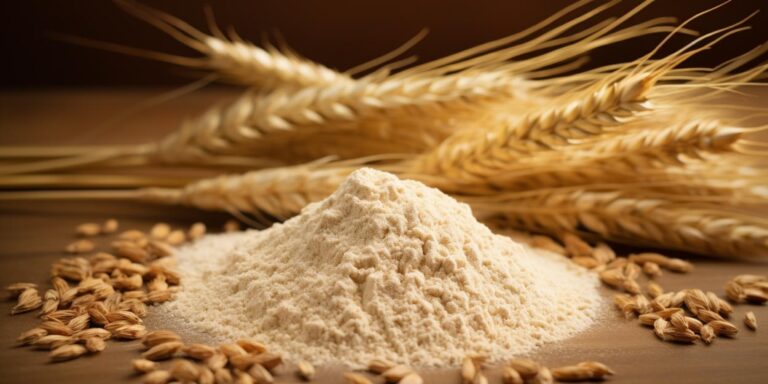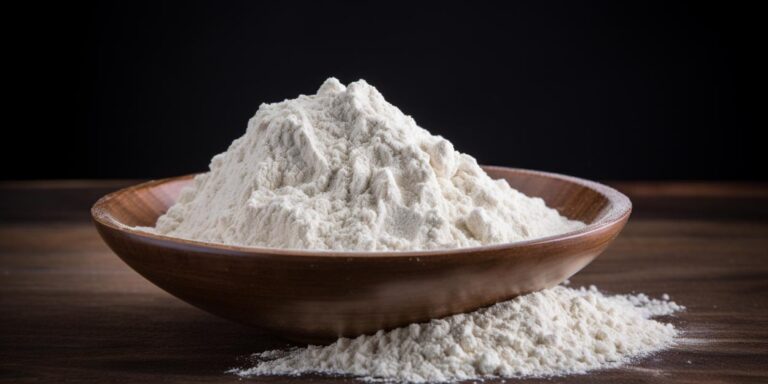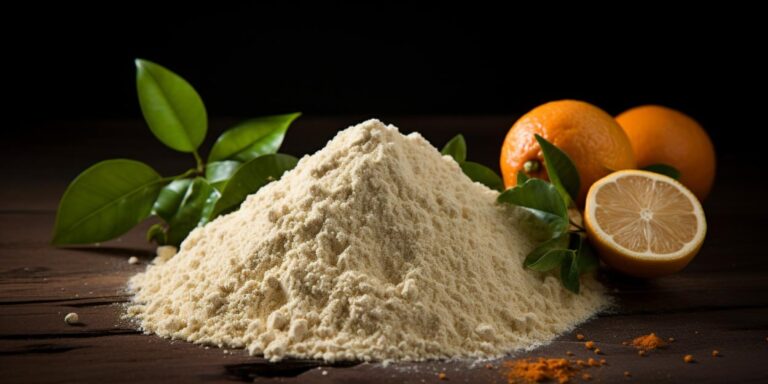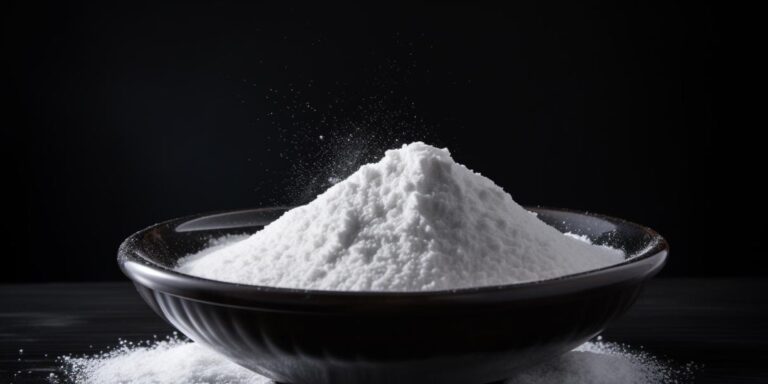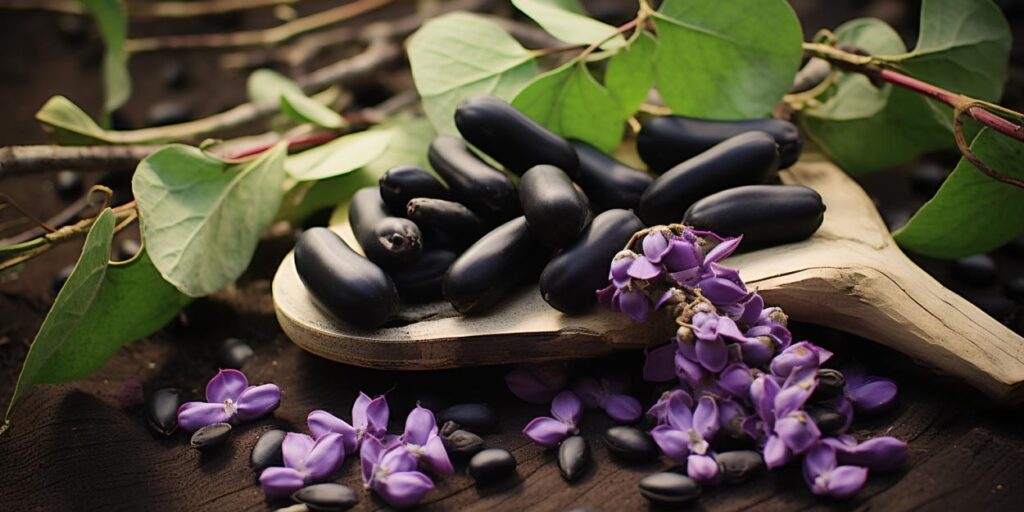
Mucuna pruriens (extract) is mainly used because it may improve our mood and hormone levels [1][2]. In addition, research shows that this supplement can also reduce our stress level [1][2]. Some of these functions are possible because Mucuna Pruriens extract contains the ingredient L-Dopa. L-Dopa can have many positive effects since it is able to increase the dopamine level of users [1][2]. L-Dopa also occurs naturally in our body, and small amounts are produced in our body from the amino acid tyrosine. However, due to the small amount of L-Dopa in our body, a Mucuna Pruriens supplement is often used.
Mucuna pruriens is also known as:
L-Dopa (main ingredient of Mucuna Pruriens extract)
Levodopa (main ingredient of Mucuna Pruriens extract)
Velvet Bean
Functions of Mucuna pruriens and L-Dopa
Increase in dopamine and sense of well-being
Mucuna pruriens is mainly used for its positive effect on our mood and stress level [1][2]. Many of the positive effects are possible because Mucuna Pruriens contains relatively large amounts of L-Dopa [9]. L-Dopa is a direct precursor of dopamine, which means that consumption of Mucuna Pruriens can increase the dopamine level in our body [1]. These elevated dopamine levels can potentially give users a sense of happiness, improve socializing, and reduce feelings of pain and stress [2][3][4]. However, some findings are debatable, as one study has stated that L-Dopa does not affect mood in healthy and cheerful people [5]. So, based on current research, it appears that L-Dopa can improve mood, but only when people are sick or in a bad mood.
Possible increase in testosterone and growth hormone in men
Mucuna Pruriens is also consumed to increase testosterone levels and libido in men. This is not surprising since dopamine is considered to be one of the most important neurotransmitters for sexuality and libido in men [1]. Research has shown that Mucuna Pruriens can significantly increase the testosterone level in infertile men and in men with a low testosterone level [1][2]. In addition, this supplement has been shown to improve sperm count, motility and overall sperm quality [2]. It may also balance other sex and stress hormones associated with male infertility [1][10]. For example, it has been shown that L-DOPA may also increase growth hormone in men [11][12]. These effects also seem to apply in healthy men with a normal libido [1]. However, the testosterone enhancing effects are less strong in this case [1].
Other functions
It has become clear that L-Dopa can increase the dopamine level of users. However, it has now been shown that it may also increase the serotonin level of users [15]. Furthermore, it was found that Mucuna Pruriens also contains antioxidants, which can improve the protection of our brain [6][7][13][14]. In addition, the L-Dopa in Mucuna Pruriens is an ingredient that may also reduce the symptoms of Parkinson’s disease [6][8][14].
Who can use Mucuna pruriens / L-Dopa ?
Mucuna Pruriens is mainly used by people who want to improve mood and reduce stress levels. In addition, it is often used by men who want to increase their libido and testosterone levels.
How should I use Mucuna pruriens / L-Dopa ?
The recommended use of Mucuna Pruriens depends on the percentage of L-Dopa in the product. When the L-Dopa percentage of a Mucuna Pruriens is 50%, it is recommended to use 100mg – 400mg Mucuna Pruriens per day. This supplement should be used a maximum of 4 days per week. After 6 weeks of consecutive use, this supplement should not be used for 2 weeks. This optimizes the effects and prevents tolerance build-up.
How does this supplement work ?
As mentioned earlier, L-Dopa is the main ingredient in Mucuna Pruriens. After consumption, L-Dopa is converted into dopamine in our body by an enzyme called aromatic amino acid decarboxylase (AADC). This is very effective since dopamine cannot cross the blood brain barrier itself, but L-Dopa can. This makes L-Dopa very effective in increasing our dopamine level. The resulting increase in dopamine, provides many of the desired effects that can be experienced when using this supplement.
Stacking / combining
This supplement can be combined with standard supplements such as: vitamins, creatine and protein powder. With very regular use or if large quantaties are consumed, it is recommended to combine this supplement with carbidopa or another decarboxylase inhibitor (DDCI). This combination ensures that more L-Dopa is converted to dopamine in our brain, instead of other parts in our body. However, this combination is mainly necessary in case of very regular use or large dosages.
In addition, this supplement is regularly combined with 5-HTP or L-Tryptophan to optimize the effects. The optimized effects are possible because 5-HTP and L-Tryptophan can increase the serotonin level in our body. This results in a balanced increase in both dopamine and serotonin.
Where does Mucuna pruriens come from ?
Mucuna Pruriens extract is made from the beans of the Mucuna Pruriens plant. These plants can be found in tropical regions, and are also known as the velvet bean plant. However, it is important to realize that both organic and synthetic Mucuna Pruriens products are available. There are no differences between quality. However, the synthetic products may contain a higher percentage of L-Dopa.
Safety & competitive use
Safety
According to reasearch, Mucuna Pruriens is safe to use when used according to the recommendations [6]. In a large safety study, no significant adverse effects were reported with use for 12-20 weeks [6]. Nevertheless, the recommended use should be followed, since side effects can occur if the recommended use is not complied with.
Correct use
A dietary supplement can contribute to a healthy and active lifestyle. However, it should not be a substitute for a healthy lifestyle and a varied diet. The recommended dosage should not be exceeded, since side effects may occur otherwise. Temporary side effects of Mucuna Pruriens can include: nausea, stomach pain, and headache. In rare cases, these side effects can also occur with normal doses. If side effects occur, consumption should be discontinued.
As with any supplement, we advise users to consult a physician before use. In particular if you use medication or have health complaints. This product should not be used in combination with other dopamine enhancers. It should also not be combined with antidepressants. In addition, this supplement should not be used by women who are pregnant or breastfeeding. Furthermore, this product should not be used by persons under 18 years of age and must be kept out of the reach of children. Keep this product in a cool and dry place to maintain the quality.
References
- Shukla, K. K., Mahdi, A. A., Ahmad, M. K., Shankhwar, S. N., Rajender, S., & Jaiswar, S. P. (2009). Mucuna pruriens improves male fertility by its action on the hypothalamus–pituitary–gonadal axis. Fertility and sterility, 92(6), 1934-1940.
- Shukla, K. K., Mahdi, A. A., Ahmad, M. K., Jaiswar, S. P., Shankwar, S. N., & Tiwari, S. C. (2010). Mucuna pruriens reduces stress and improves the quality of semen in infertile men. Evidence-Based Complementary and Alternative Medicine, 7.
- Black, K. J., Hershey, T., Koller, J. M., Videen, T. O., Mintun, M. A., Price, J. L., & Perlmutter, J. S. (2002). A possible substrate for dopamine-related changes in mood and behavior: prefrontal and limbic effects of a D3-preferring dopamine agonist. Proceedings of the National Academy of Sciences, 99(26), 17113-17118.
- Baixauli, E. (2017). Happiness: Role of Dopamine and Serotonin on Mood and Negative Emotions. Emergency Medicine Australasia, 7, 1-3.
- Liggins, J., Pihl, R. O., Benkelfat, C., & Leyton, M. (2012). The dopamine augmenter L-DOPA does not affect positive mood in healthy human volunteers. PLoS One, 7(1), e28370.
- Katzenschlager, R., Evans, A., Manson, A., Patsalos, P. N., Ratnaraj, N., Watt, H., … & Lees, A. J. (2004). Mucuna pruriens in Parkinson’s disease: a double blind clinical and pharmacological study. Journal of Neurology, Neurosurgery & Psychiatry, 75(12), 1672-1677.
- Lampariello, L. R., Cortelazzo, A., Guerranti, R., Sticozzi, C., & Valacchi, G. (2012). The magic velvet bean of Mucuna pruriens. Journal of Traditional and Complementary Medicine, 2(4), 331-339.
- Nagashayana, N., Sankarankutty, P., Nampoothiri, M. R. V., Mohan, P. K., & Mohanakumar, K. P. (2000). Association of L-DOPA with recovery following Ayurveda medication in Parkinson’s disease. Journal of the neurological sciences, 176(2), 124-127.
- Tomita-Yokotani, K., Hashimoto, H., Fujii, Y., Nakamura, T., & Yamashita, M. (2004). Distribution of L-DOPA in the root of velvet bean plant (Mucuna pruriens L.) and gravity. Uchu Seibutsu Kagaku, 18(3), 165-166.
- Gupta, A., Mahdi, A. A., Ahmad, M. K., Shukla, K. K., Bansal, N., Jaiswer, S. P., & Shankhwar, S. N. (2011). A proton NMR study of the effect of Mucuna pruriens on seminal plasma metabolites of infertile males. Journal of pharmaceutical and biomedical analysis, 55(5), 1060-1066.
- Root, A. W., & Russ, R. D. (1972). Effect of L-dihydroxyphenylalanine upon serum growth hormone concentrations in children and adolescents. The Journal of pediatrics, 81(4), 808-813.
- Boden, G., Lundy, L. E., & Owen, O. E. (1972). Influence of levodopa on serum levels of anterior pituitary hormones in man. Neuroendocrinology, 10(5), 309-315.
- Agbafor, K. N., & Nwachukwu, N. (2011). Phytochemical analysis and antioxidant property of leaf extracts of Vitex doniana and Mucuna pruriens. Biochemistry Research International, 2011.
- Dhanasekaran, M., Tharakan, B., & Manyam, B. V. (2008). Antiparkinson drug–Mucuna pruriens shows antioxidant and metal chelating activity. Phytotherapy Research: An International Journal Devoted to Pharmacological and Toxicological Evaluation of Natural Product Derivatives, 22(1), 6-11.
- Manyam, B. V., Dhanasekaran, M., & Hare, T. A. (2004). Neuroprotective effects of the antiparkinson drug Mucuna pruriens. Phytotherapy Research: An International Journal Devoted to Pharmacological and Toxicological Evaluation of Natural Product Derivatives, 18(9), 706-712.
Author


